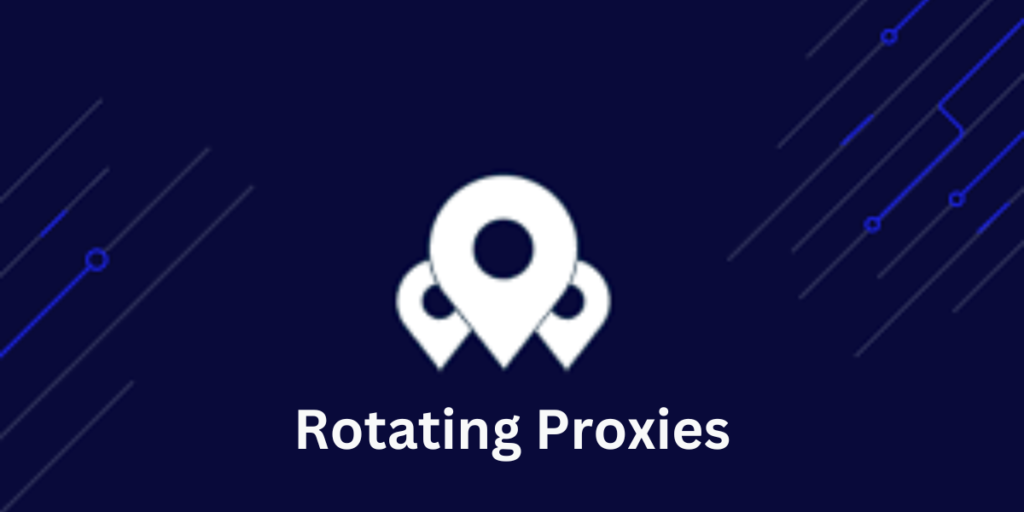Generally speaking, proxies have become quite vital tools for data gathering, web scraping, and secure browsing. Among the different types of proxies, the Rotating Proxies kind provides one with a high level of anonymity and efficiency in the management of web requests.
The rotation technology behind them is a critical concept to understand, especially when one intends to use these proxies in various online activities. This piece will focus on what powers rotating proxies in terms of technology and why they stand so strong in the modern-day digital ecosystem.
What Is a Rotating Proxy?
Rotating proxies are those that switch the IP address from which your web requests originate automatically after a set interval. This constant switching of IP addresses significantly enhances anonymity and makes it difficult for websites to track or block a user’s activity.
Behind residential proxy are a number of key elements in the technology that ensure efficiency and privacy are delivered together. Understanding them better may explain why they rank among the preferred choices for secure, large-scale online tasks.
1. IP Pool Rotation System
At the heart of the magic of rotating proxies is the rotation system of the IP pool. It’s a system built around one huge pool of different IP addresses all around the world. For every request a user makes to visit a website, this rotation system assigns an available IP so that the next request gets routed through another address. This constant switching makes it practically impossible for websites to determine your real location or block access based on IP.
One of the most critical factors concerning how well rotating proxies work is the size of the IP pool. Larger pools with geographically diverse IPs provide more anonymity and allow the user to access any content from different regions without getting blocked. It can be highly useful for bypassing geo-restrictions or conducting data gathering on a global scale.
2. Session Control
Rotating proxies also offer session control, which gives the user a choice of how often the IP address is changed. While some rotating proxies change the IP address after every request, others rotate after a certain period of time or number of requests. Such flexibility ascertains that, as far as the task may require, users have the ability to customize their proxy usage.
Rotation of the IPs after every request greatly aids in web scraping as it limits the chances of detection and blocking by anti-bot systems. For regular browsing, the user may want less frequency in changes to their IP for continuity in sessions without alarms on the websites that they plan to visit.
3. Proxy Servers and Load Balancing
Rotating proxies make use of a distributed network of servers across the world. Each server acts as an intermediary between the user and the target website, routing requests through different IP addresses in the pool. Apart from enhancing anonymity, such a setup spreads web traffic across multiple servers, guaranteeing smooth, uninterrupted connections.
It incorporates load balancing technology into the proxy system, which helps in the distribution of the load across the available servers, thus preventing overloading and ensuring that each request is handled with speed and efficiency. Such integration allows these tools to manage bulk operations without bottlenecks.
4. Anonymous Browsing and Web Scraping
The main use cases where rotating proxies shine their brightest are anonymous browsing and web scraping. Many websites have mechanisms in place to track incoming traffic, usually raising alarms about an anomaly in activity on possible data extraction if requests are coming from the same IP. In such a case, rotating proxies would work by changing your IP address with each request to simulate organic traffic from several different users.
Rotating proxies are especially useful in web scraping projects. They allow a user to scrape data from websites without being blocked by anti-bot systems. Moreover, since the IPs change quite frequently, it becomes virtually impossible for the target website to track data scrapers or associate the requests with a single user.
5. Geo-Targeting Capabilities
Another great advantage of using rotating proxies is their geo-targeting capability. Utilizing IPs from different countries enables users to unblock location-specific content and services. This ensures that the collection of data across other areas or the bypassing of certain geo-restrictions becomes easier.
This feature is generally used in business when it comes to monitoring competitors across borders, conducting market research, or when there is a need for region-specific information. Moreover, this feature provides users with a competitive advantage in data collection and further flexibility in resource access over the internet throughout the world.
In Conclusion
Rotating proxies are a must-have tool for the privacy protection of businesses and individuals. They not only enhance privacy but also enrich the effectiveness of web scraping and help bypass geo-restrictions. Features such as IP rotation and session control ensure unmatched anonymity and flexibility for any kind of online task. For those requiring a dependable and mighty solution, IPRoyal Rotating Proxies deliver any sort of speed, security, and performance necessary for success in today’s digital environment.







